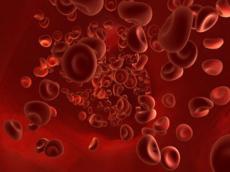|
|
TODAY.AZ / World news
Iran manufactures anti-hemophilia drug
06 February 2012 [14:33] - TODAY.AZ
 Iran has launched domestic manufacturing of Factor VII protein, which is used in treating hemophilia, IRNA reported. Factor VII (formerly known as proconvertin) is one of the proteins that causes blood to clot in the coagulation cascade. It is an enzyme (EC 3.4.21.21) of the serine protease class.
Iran has launched domestic manufacturing of Factor VII protein, which is used in treating hemophilia, IRNA reported. Factor VII (formerly known as proconvertin) is one of the proteins that causes blood to clot in the coagulation cascade. It is an enzyme (EC 3.4.21.21) of the serine protease class.Hemophilia is a group of inherited blood disorders in which the blood does not clot properly. Bleeding disorders are due to defects in the blood vessels, the coagulation mechanism, or the blood platelets. An affected individual may bleed spontaneously or for longer than a healthy person after injury or surgery.
At the hosted event timed to the Fajr celebrations, it was also noted that along with Factor VII, Iran also started production of recombinant monoclonal antibodies. Iran's president Mahmoud Ahmadinejad was present at the event.
The production of recombinant monoclonal antibodies involves technologies, referred to as repertoire cloning or phage display/yeast display. Recombinant antibody engineering involves the use of viruses or yeast to create antibodies.
These techniques rely on rapid cloning of immunoglobulin gene segments to create libraries of antibodies with slightly different amino acid sequences from which antibodies with desired specificities can be selected.
They can also be used to enhance the specificity with which antibodies recognize antigens, their stability in various environmental conditions, their therapeutic efficacy, and their detectability in diagnostic applications.
It was noted that both medications will be manufactured by Aryogen Research & Manufacturing complex in Iran.
According to IRINN TV channel, there are only two manufacturing complexes in the world that produce Factor VII, one of which is in Denmark. The other one is in Iran.
Domestic manufacturing and production of the above mentioned medications will allow Iran to save around $100 mln each year, since the country was importing the both medications from other countries.
/Trend/
URL: http://www.today.az/news/regions/102081.html
 Print version
Print version
Views: 1239
Connect with us. Get latest news and updates.
See Also
- 21 November 2025 [23:23]
Uber launches robot deliveries in UK - 21 November 2025 [22:21]
OpenAI launches ChatGPT group chats worldwide - 21 November 2025 [19:50]
WhatsApp introduces new feature - 21 November 2025 [09:00]
Messi is Barcelona's greatest player - 21 November 2025 [08:00]
Amazon to pay LG Wi-Fi royalties - 20 November 2025 [23:19]
Beloved UK dog breeds may vanish - 20 November 2025 [22:47]
Turkiye expands its African sphere of influence with bold Libya shift - 20 November 2025 [21:50]
US approves semiconductor sales to UAE and Saudi Arabia - 20 November 2025 [21:23]
US begins work on new F-47 fighter - 20 November 2025 [20:55]
Justice Minister says terror-free Turkiye is essential for nation’s future
Most Popular
 Azerbaijan, Israel hold fourth joint commission meeting in Jerusalem
Azerbaijan, Israel hold fourth joint commission meeting in Jerusalem
 Victim testimonies heard as trial of Ruben Vardanyan continues in Baku Military Court
Victim testimonies heard as trial of Ruben Vardanyan continues in Baku Military Court
 Baku hosts second day of International Banking Forum
Baku hosts second day of International Banking Forum
 Turkiye expands its African sphere of influence with bold Libya shift
Turkiye expands its African sphere of influence with bold Libya shift
 AzInTelecom participates as key partner at 9th International Banking Forum
AzInTelecom participates as key partner at 9th International Banking Forum
 IFC marks 30 years of support for Azerbaijan’s economic development
IFC marks 30 years of support for Azerbaijan’s economic development
 To whom is Khachaturian showing the Kremlin?
To whom is Khachaturian showing the Kremlin?
